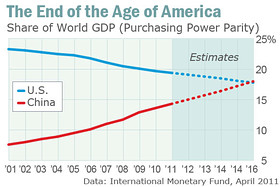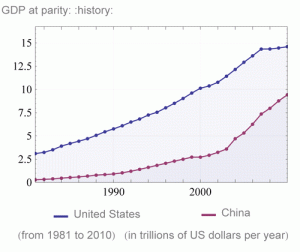The story first came out yesterday afternoon of yet another screwed-up police raid. (And if you read Radley Balko a lot, you won’t be surprised to learn that it happened in Broward County, Florida.) Things didn’t quite turn out the way the police expected:
Broward Circuit Court Judge Ilona Holmes, her sister and her sister’s family says they were ordered at gun point by several Broward Sheriffs Deputies on Easter Sunday to come out of her sister’s home with their hands up.
…
“There’s a man with a gun and he’s going to shoot me!!” yelled Carmita. “I thought it was the robber!” Her sister, Judge Holmes, came running to the kitchen. The judge carries a legal firearm and immediately pulled it out and held it in her hand.
“She said ‘Who are you!? What are you doing?!’ He said ‘this is BSO.’ She said, ‘this is Circuit Court Judge Ilona Holmes!!’” Carmita said.
Heh. That’s probably not the response police were expecting. As the incident quieted down, the judge’s sister was still upset:
But Carmita was downright angry. Remember the man outside her kitchen window who pointed a gun at her? Still wearing her pajamas and footies, she approached him afterward. “I said ‘you had a gun pointed at me!’ He said ‘because I felt threatened.’ I said ‘threatened how?'”
She said other officers explained to her that they have families, too, and they want to make it home alive each night. But she says they did so in a condescending way, lecturing her as if she’d done something wrong.
“I know no one apologized, OK? And, to me, if you want to make amends for something, you want to make peace, you apologize, you shake, you leave, you say ‘I’m sorry,’” she said. “And, you know, the cop that had his gun on me, he said ‘well, I was fearing for my life.’ I said ‘really! You were fearing for your life? Really?’ He said ‘forget it – I’m out of here.'”
Here’s the key observation by reporter Jeff Burnside:
Judge Holmes, one of the very few black judges in Broward County, saw justice from a whole new perspective. Tuesday night she was in her courtroom conducting a late–running trial and would not comment.
Yup, “a whole new perspective.” Another story has more reactions:
Holmes, who told deputies she was armed before she came outside, refused to sit on the ground because she had a bad back.
“None of the residence complied with police,” a deputy wrote.
…
When investigators went to question Holmes further about what happened, she was in no mood to talk.
“She stated to me from inside that she was soaking her feet and now was not a good time,” the report read.
Given the title of this post, you might think I’m about to commend the judge for her resistance to the Broward County deputies. And yeah, I would, because that’s how everybody should be able to behave when police treat them like crap.
But Judge Holmes is not the real freedom fighter here. No, because that honor goes to the unnamed officer who lead the raid on the home where Judge Holmes was visiting. He probably did more to change Judge Holme’s opinions on crime and the police than any ten criminal defense attorneys ever would.
Dear readers, fellow lovers of liberty, this is how we win.
You may think the fight is best fought as a criminal defense lawyer, a civil rights lawyer, a crusading journalist, or even (God help us) a libertarian blogger, but you’re wrong. If you want to fight for liberty, become a cop.
And start harassing judges.
I figure we need about 200 of you, mostly young white males so you blend right in with the local police. We need at least three of you in each state to move to the seat of government and become a cop. We also need people in the seats of every federal district, and we need about 25 people in and around Washington D.C.
Look up the names of all the appellate judges, find out where they live, find out what car they drive. Then whenever you have some spare time, catch one of them on the road. Pull them over, treat them like shit, empty the entire contents of their cars out into the rain. Lie on the stand when asked if they gave permission for the search. If they give you any trouble at the side of the road, hit them with the Taser and arrest them for disorderly conduct and resisting arrest.
If you have more time, find a judge’s house and search the neighborhood for someone to arrest. Use the arrest as leverage to get that person to say they bought drugs at the judge’s house, then swear out a search warrant and hit the judge’s house at dinner time when the whole family is there. Be sure to shoot the family dog and then claim you felt threatened. Arrest everyone who complains, and lie in court about what they did to get arrested.
The D.C. team will have to make an effort to do this specifically to Supreme Court judges. Punch them in the face if no one’s watching and there aren’t any cameras. If you can’t find any judges — there aren’t that many of them — do this to a legislator instead.
You won’t last long as a cop. Oh, sure, cops do this to ordinary people for years, but if you do this to judges and other powerful people, they will pull strings to get rid of you. Don’t worry, you won’t go to jail or anything (you are, after all, a cop), but you’ll probably get driven out of the department in a few years. Which is no big deal, because you didn’t want to be a cop anyway, right?
After a few years of this, I’ll bet judges start taking those constitutional rights and burdens of proof a whole lot more seriously. Just think, with a few years of service to your country before starting your real career, you could turn the tide of freedom.
I’m sure some of you think this plan is awful, and that you don’t want do anything this cruel and heartless, even in service of liberty. Hmm… I’ll tell you what, let’s compromise on a milder approach: Don’t shoot the family dog.



